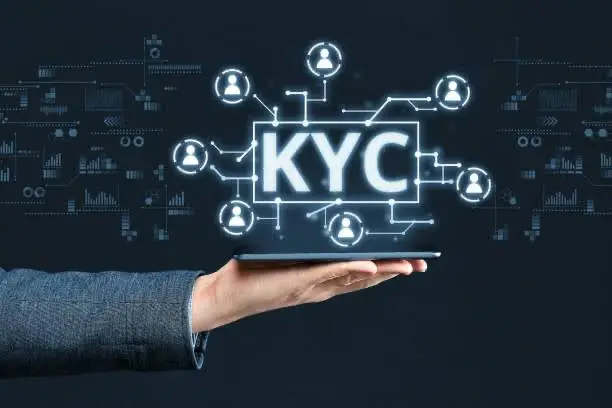The moment’s world is digital, with lots of online plutocrat dealings. It’s super important to make sure that druggies are who they say they are. That’s where Know Your Client ( KYC) checks help. These checks are a way for companies to check who their customers are. They also help spot any hints of bad conditioning like stealing identity, plutocrat laundering, or backing terror. How does KYC work? Let’s get into that.
Introduction to KYC Verification
KYC verification is a standard procedure enforced by colorful diligence, including banking, finance, e-commerce, and cryptocurrency, to corroborate the identity of their customers. It involves collecting particular customer information and documents to validate their identity and ensure compliance with nonsupervisory conditions.
Importance of KYC Verification
KYC verification is pivotal for businesses to establish trust with their customers and alleviate pitfalls associated with fiscal crimes. By vindicating the identity of customers, businesses can help fraudulent conditioning, misbehave with legal regulations, and guard their character.
Legal Requirements for KYC Verification
Colorful nonsupervisory bodies, similar to the Financial Action Task Force( FATF) and the Securities and Exchange Commission( SEC), have established guidelines and regulations calling for KYC compliance for businesses. Failure to comply with these regulations can result in severe penalties and legal consequences.
Common methods used in KYC Verification
Document Verification
Document verification involves vindicating the authenticity of identity documents handed by customers, similar to passports, motorist’s licenses, and public identification cards.
Biometric Verification
Biometric verification utilizes unique physical characteristics, similar to fingerprints, facial features, or iris patterns, to authenticate the identity of individualities.
Electronic ID Verification
Electronic ID verification utilizes electronic databases and algorithms to corroborate the identity of customers by cross-referencing their particular information with authoritative sources.
How Does KYC Verification Work?
Collection of Information
The KYC process begins with the collection of information from customers, including particular details, contact information, and identity documents.
Verification Process
Once the information is collected, it undergoes a rigorous verification process, where it’s cross-checked against colorful databases and sources to confirm its authenticity.
Decision Making
Grounded on the results of the verification process, businesses make informed opinions regarding the blessing or rejection of client accounts.
Benefits of KYC Verification
- Mitigates the threat of fiscal crimes
- Enhances client trust and fidelity
- Ensures compliance with nonsupervisory conditions
- Protects businesses from reputational damage
Challenges in KYC Verification
Despite its benefits, KYC verification poses certain challenges, such as the need for nonstop monitoring, technological limitations, and the eventuality of false cons.
KYC Verification in Different Diligence
KYC verification is employed across colorful diligence to misbehave with nonsupervisory conditions and alleviate pitfalls associated with fiscal deals.
Banking and Finance
Banks and fiscal institutions are needed to conduct CKYC verification to help plutocrat laundering, fraud, and other illegal conditioning.
E-commerce
E-commerce platforms use KYC verification to corroborate the identity of customers and help fraudulent deals.
Cryptocurrency
In cryptocurrency assistance, KYC verification is essential for complying with anti-money laundering( AML) and know-your-client ( KYC) regulations.
Future Trends in KYC Verification
With advancements in technology, KYC verification is anticipated to become more streamlined and effective, incorporating technologies similar to artificial intelligence, machine literacy, and blockchain.
- Tips for Effective KYC Verification
- Implement robust verification procedures
- Stay streamlined on nonsupervisory changes
- Invest in advanced verification technologies
- Educate workers on KYC compliance
Conclusion
In conclusion, KYC verification plays a pivotal part in securing businesses against fiscal crimes and icing the security and legality of client deals. By enforcing effective KYC verification processes and staying abreast of nonsupervisory conditions, businesses can build trust with their customers and alleviate pitfalls effectively.
You might also like
How to View Twitter Without an Account?







